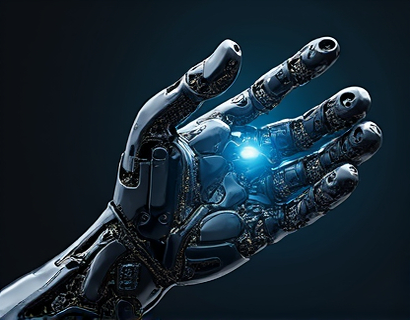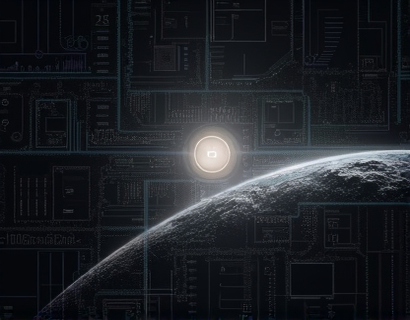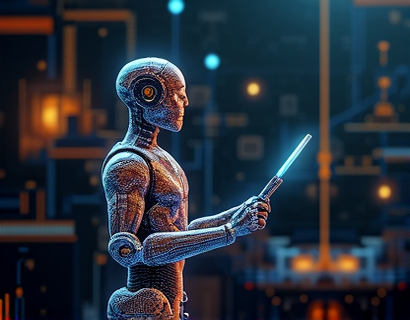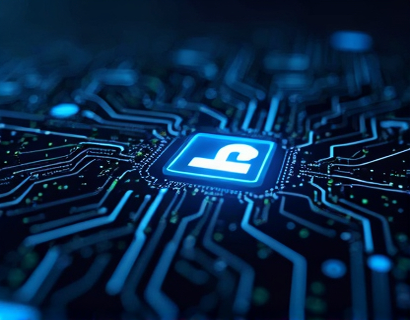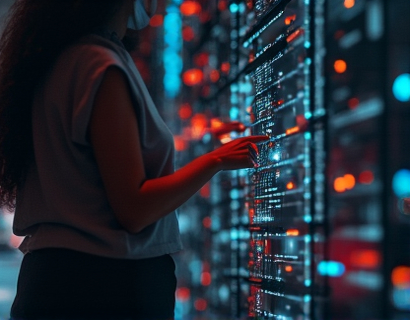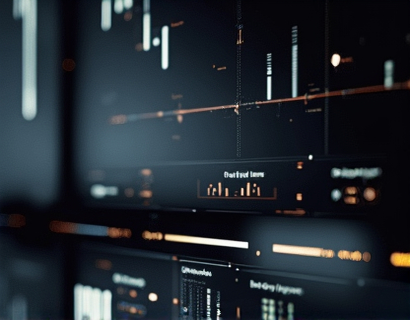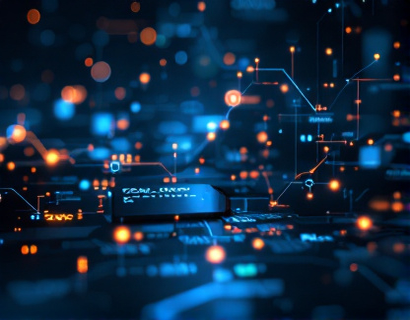Transforming Digital Experiences: The Synergy of Crypto and AI
The intersection of blockchain technology and artificial intelligence (AI) is ushering in a new era of digital transformation. This convergence is not just a technological curiosity but a powerful force reshaping how we interact with apps and services online. For tech innovators and early adopters, understanding this synergy is crucial for staying ahead in the rapidly evolving digital landscape. This article delves into the transformative potential of blockchain and AI, offering a comprehensive guide to leveraging these advanced technologies for enhanced connectivity and elevated online presence.
Understanding Blockchain and AI
Blockchain technology, at its core, is a decentralized ledger that ensures transparency, security, and immutability. It underpins cryptocurrencies like Bitcoin and Ethereum but extends far beyond digital currencies. The technology's key features include distributed consensus, smart contracts, and tokenization, which can be harnessed for various applications.
Artificial intelligence, on the other hand, involves the simulation of human intelligence processes by machines, particularly computer systems. These processes include learning (the acquisition of information and rules for using it), reasoning (using rules to reach approximate or definite conclusions), and self-correction. AI's capabilities range from natural language processing and machine learning to computer vision and predictive analytics.
The combination of blockchain and AI creates a powerful toolkit for developers and businesses. Blockchain provides a secure and transparent framework, while AI adds intelligence and automation, leading to innovative solutions that can drive unprecedented growth and engagement.
Enhancing App Interactions with Blockchain
One of the most significant impacts of blockchain on app interactions is through decentralized applications (dApps). Unlike traditional apps hosted on centralized servers, dApps run on a blockchain network, ensuring that no single entity has control over the application or its data. This decentralization enhances security and user privacy, as data is distributed across a network of nodes rather than stored in a single location.
Smart contracts, self-executing contracts with the terms directly written into code, are another key feature. They automate and enforce agreements without the need for intermediaries, reducing costs and increasing efficiency. For instance, in a gaming app, smart contracts can manage in-game asset ownership and transactions, ensuring fair play and reducing fraud.
Tokenization is another transformative aspect. By representing assets as tokens on a blockchain, apps can create new revenue models and enhance user engagement. For example, a music streaming service can tokenize music tracks, allowing artists to monetize their work directly and fans to own fractions of songs.
AI-Driven Personalization and User Experience
AI's ability to analyze vast amounts of data and derive insights makes it an invaluable tool for personalizing user experiences. In the context of blockchain-based apps, AI can enhance user engagement by providing tailored recommendations and interactions. For instance, a decentralized social media platform can use AI to curate content based on user preferences, ensuring a more relevant and engaging experience.
Chatbots powered by AI can also revolutionize customer support in blockchain applications. These bots can handle a wide range of queries, from transaction confirmations to smart contract executions, providing instant and accurate responses. This not only improves user satisfaction but also reduces the workload on human support teams.
Predictive analytics, another AI strength, can help businesses anticipate user behavior and market trends. By analyzing patterns in blockchain data, companies can make informed decisions about product development, marketing strategies, and resource allocation. This proactive approach can give businesses a competitive edge in the market.
Security and Trust through Blockchain and AI
Security is a paramount concern in the digital world, and the combination of blockchain and AI offers robust solutions. Blockchain's inherent security features, such as cryptographic hashing and consensus mechanisms, ensure that data is tamper-proof. AI can further enhance security by detecting and mitigating threats in real-time.
Anomaly detection algorithms can identify unusual patterns that may indicate a security breach, allowing for immediate action. For example, in a decentralized finance (DeFi) platform, AI can monitor transaction flows and flag suspicious activities, preventing fraud and ensuring user funds are safe.
Trust is another critical aspect, especially in decentralized systems where users interact with unknown parties. Blockchain provides a transparent ledger that all participants can verify, building trust through visibility. AI can augment this by providing reputation scores and trust metrics based on user behavior and transaction history, further enhancing the trustworthiness of the ecosystem.
Scalability and Efficiency
Scalability remains a challenge for blockchain technology, but AI can help address this issue. By optimizing blockchain operations and improving the efficiency of smart contracts, AI can facilitate smoother and faster transactions. For instance, machine learning algorithms can predict network congestion and dynamically adjust resource allocation to maintain performance.
Cross-chain interoperability is another area where AI can make a significant impact. By enabling different blockchain networks to communicate and transfer assets seamlessly, AI can create a more integrated and efficient digital ecosystem. This interoperability is essential for the widespread adoption of blockchain technology across various industries.
Case Studies and Real-World Applications
Several projects are already leveraging the synergy of blockchain and AI to drive innovation. One notable example is a decentralized identity management system that uses blockchain to store user identities and AI to verify and manage access permissions. This system ensures that users have control over their personal data while providing secure and seamless authentication.
In the supply chain industry, a blockchain-based platform combined with AI can track products from origin to destination, ensuring transparency and traceability. AI algorithms can analyze data from sensors and other sources to predict maintenance needs, optimize routes, and reduce waste, leading to more efficient and sustainable operations.
Another application is in the healthcare sector, where blockchain can securely store patient records, and AI can analyze this data to provide personalized treatment recommendations. This combination not only enhances patient care but also ensures data privacy and compliance with regulations.
Challenges and Considerations
While the potential of blockchain and AI is vast, there are challenges that need to be addressed. One major concern is the regulatory landscape, as both technologies operate in areas that are still evolving in terms of legal frameworks. Developers and businesses must stay informed about regulations in their respective regions to ensure compliance.
Another challenge is the technical complexity involved in integrating blockchain and AI. Developers need a solid understanding of both technologies to create robust and efficient solutions. Additionally, the computational resources required for AI, especially for tasks like training machine learning models, can be substantial, necessitating scalable and cost-effective infrastructure.
Privacy is also a critical issue. While blockchain provides transparency, it can sometimes conflict with user privacy. Implementing privacy-preserving techniques, such as zero-knowledge proofs, can help balance transparency and privacy in blockchain-based systems.
Future Outlook
The future of digital experiences is increasingly intertwined with blockchain and AI. As these technologies continue to mature, we can expect more innovative applications across various industries. The convergence of these technologies will likely lead to the creation of more intelligent, secure, and user-centric digital ecosystems.
For tech innovators and early adopters, embracing this synergy is essential for staying competitive. By understanding the capabilities and potential of blockchain and AI, they can develop solutions that not only meet current needs but also anticipate future trends. The roadmap to digital success in the next generation of ecosystems is clear: harness the power of blockchain and AI to transform and elevate digital experiences.




